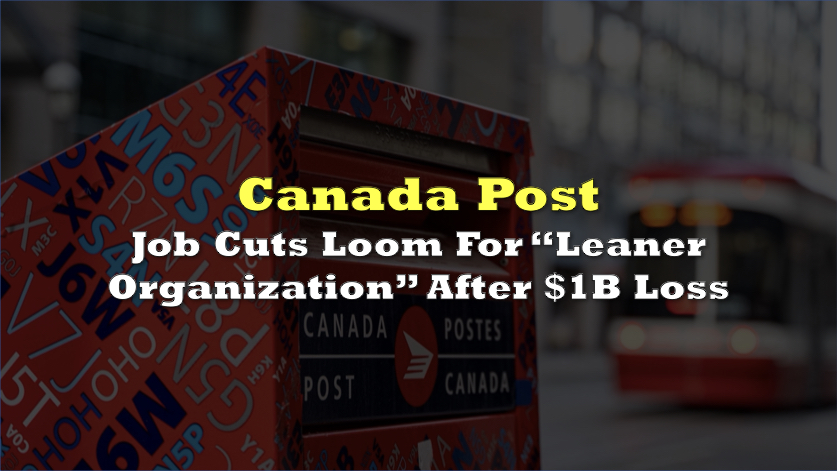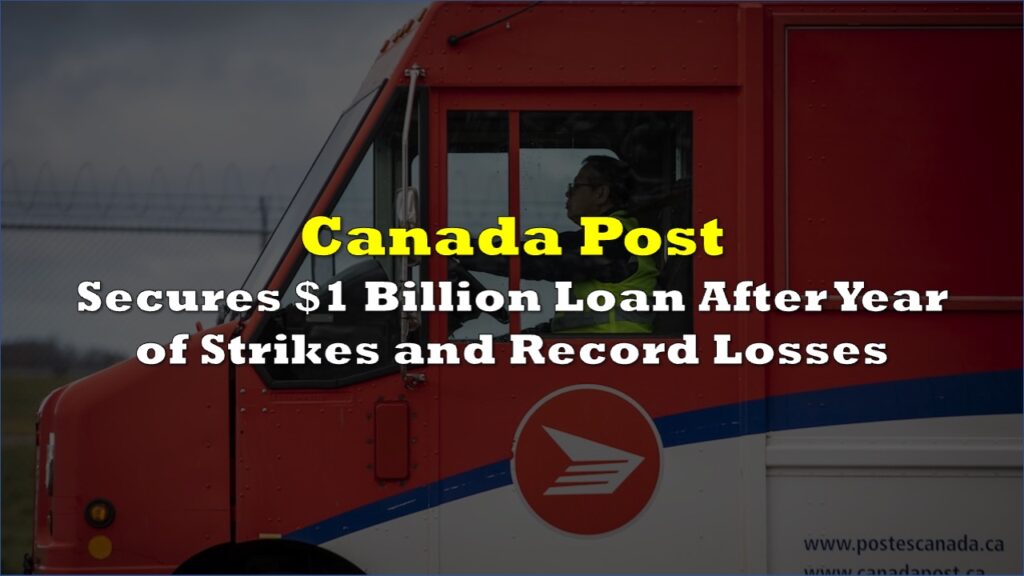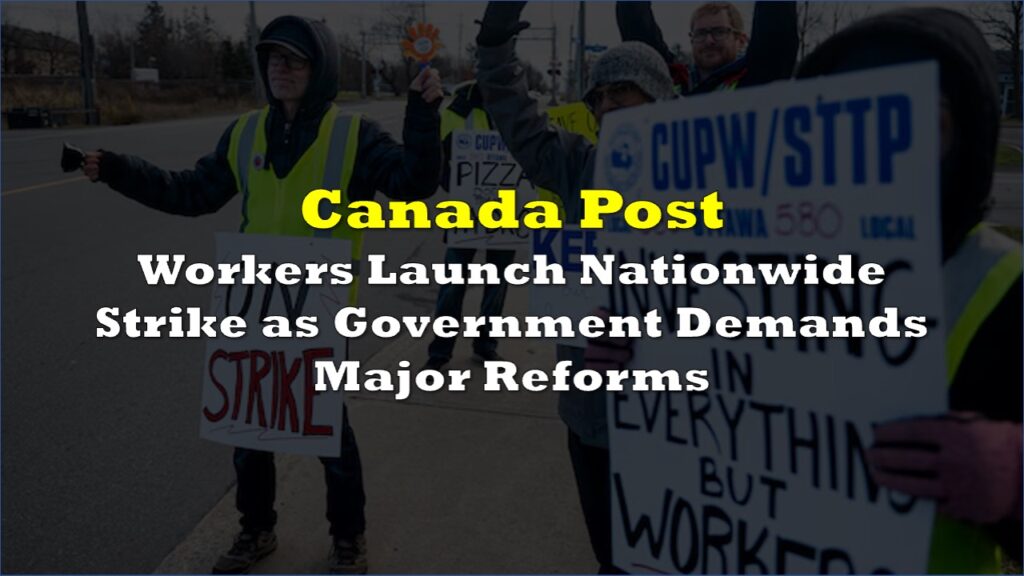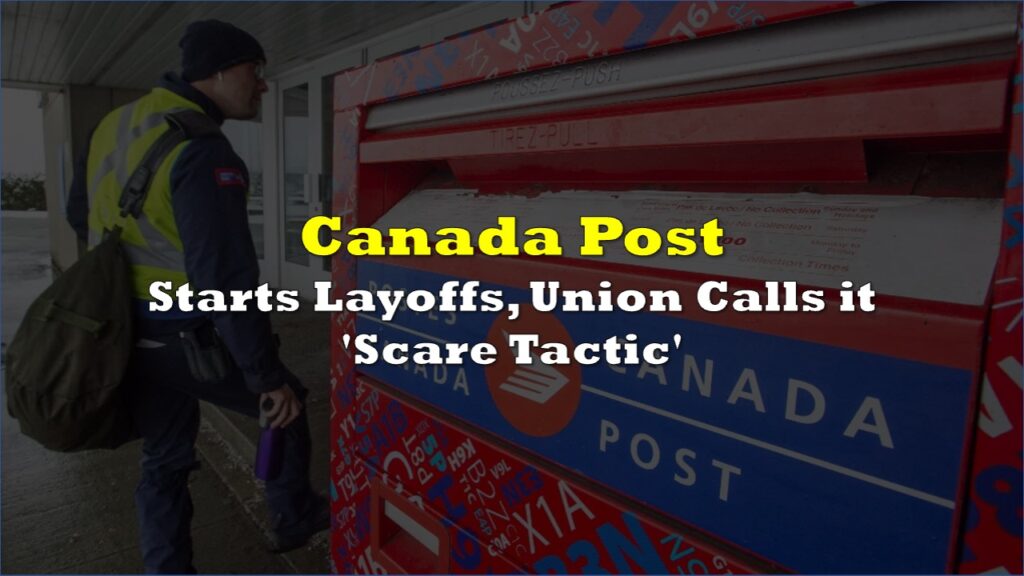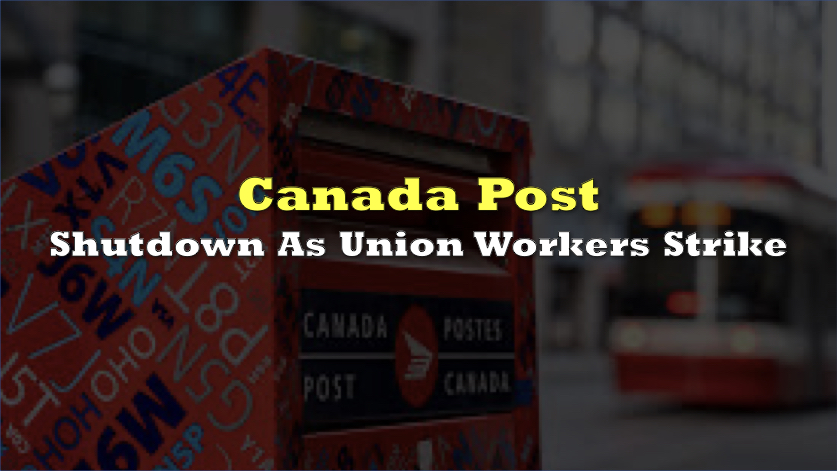Canada Post is preparing for sweeping workforce reductions as it declares itself “effectively insolvent” and reports more than $1 billion in operating losses so far in 2025 alongside a record quarterly loss of $541 million before tax.
At its annual public meeting on Tuesday, CFO Rindala El-Hage said the $541 million quarterly shortfall was the largest in the company’s history and tied the deepening red ink to “continued labour uncertainty and disruption” from an ongoing dispute with postal workers.
El-Hage framed the cumulative operating loss in 2025, already above $1 billion before year end, as confirmation that the Crown corporation can no longer sustain its current cost base.
The deteriorating numbers follow a federal directive in September instructing Canada Post to undertake sweeping changes, including ending home delivery and closing some rural outlets, to stabilize finances and ensure survival. Earlier this month, the corporation privately submitted a modernization and streamlining plan to Ottawa.
CEO Doug Ettinger used the public meeting to signal that labour costs will be a primary adjustment lever, saying Canada Post will rely on attrition and voluntary departures to shrink its workforce from roughly 62,000 employees today. He projected more than 16,000 employees will retire from or leave the corporation by 2030 and another 14,000 by 2035, implying around 30,000 roles could disappear over the next decade if the plan is fully executed.
“Going forward, we will need to be a leaner organization,” Ettinger said, arguing that combining retirements with voluntary exits will allow the corporation to “navigate this change with respect for our employees” while aligning headcount with structurally lower mail volumes and rising financial strain.
The Canadian Union of Postal Workers condemned the messaging, warning that the attrition-based downsizing plan is effectively a large job-cut program that will hollow out public services.
“The CEO of Canada Post, Doug Ettinger, doubled down on plans to axe our jobs and our public services. These plans will have devastating impacts on the communities we serve,” CUPW said in an emailed statement.
CUPW also pushed back on the narrative that only cuts can fix the balance sheet, pointing to a stamp price increase earlier this year and service expansion as tools that should help Canada Post recoup losses. The union said both it and Canadians “have been kept in the dark” about the restructuring agenda and called the situation “outrageous.”
Negotiations for a new collective agreement have dragged on for more than a year and a half. CUPW escalated to a nationwide strike in late September after Ottawa unveiled its plan for changes to the mail delivery business, then shifted to rotating strikes restoring service in most areas but continuing targeted slowdowns. In parts of Quebec and Ontario, workers have stopped delivering flyers while still delivering addressed mail.
🇨🇦: Canada Post is losing money.
— Stephen Punwasi 🏚️📉🐈☃️ (@StephenPunwasi) October 9, 2025
The left thinks that’s okay. The right thinks it now needs to be sold off.
The elites & their politicians? They don’t want you to realize that Canada Post’s losses were manufactured so they could loot a public asset.
<thread> 🧵👇
The financial debate now extends beyond wages and work rules to management’s past decisions to sell profitable assets. Housing analyst and commentator Stephen Punwasi argues Canada Post’s losses were “manufactured so they could loot a public asset,” pointing to the 2024 sale of InnovaPost, the in-house IT provider that handled core platforms, and the divestiture of SCI, a third-party logistics firm with 75 warehouses, more than 4 million square feet of real estate and about 3,000 employees handling $1 billion of inventory at any time.
Punwasi notes that Canada Post Group lost $1.3 billion last year, which he characterizes as roughly five times its 2022 loss, after restructuring to dispose of assets he says were “printing money,” and contrasts that with a $69 million profit in 2019 before Ettinger had “full control.”
He also highlighted that Canada Post’s insolvency declaration came “a day after the budget passes,” arguing the timing illustrates a broader federal “debt stripping” strategy and warned that cutting 30,000 jobs at a public service with a 62,000-strong workforce will have spillover effects.
Canada Post, for its part, told the public meeting it remains confident that ongoing negotiations supported by federal mediators will produce a collective agreement.
Information for this story was found via CBC and the sources and companies mentioned. The author has no securities or affiliations related to the organizations discussed. Not a recommendation to buy or sell. Always do additional research and consult a professional before purchasing a security. The author holds no licenses.

